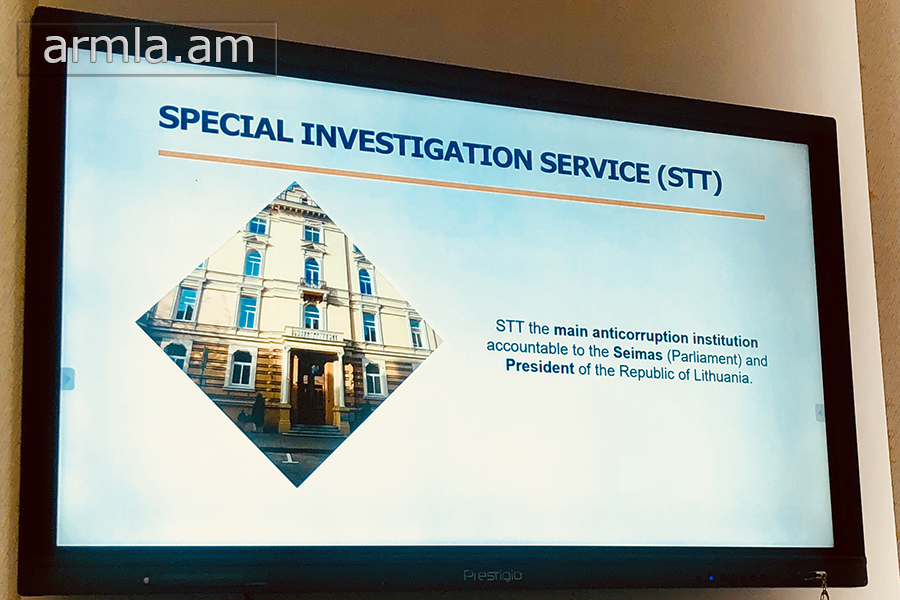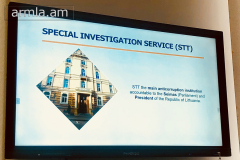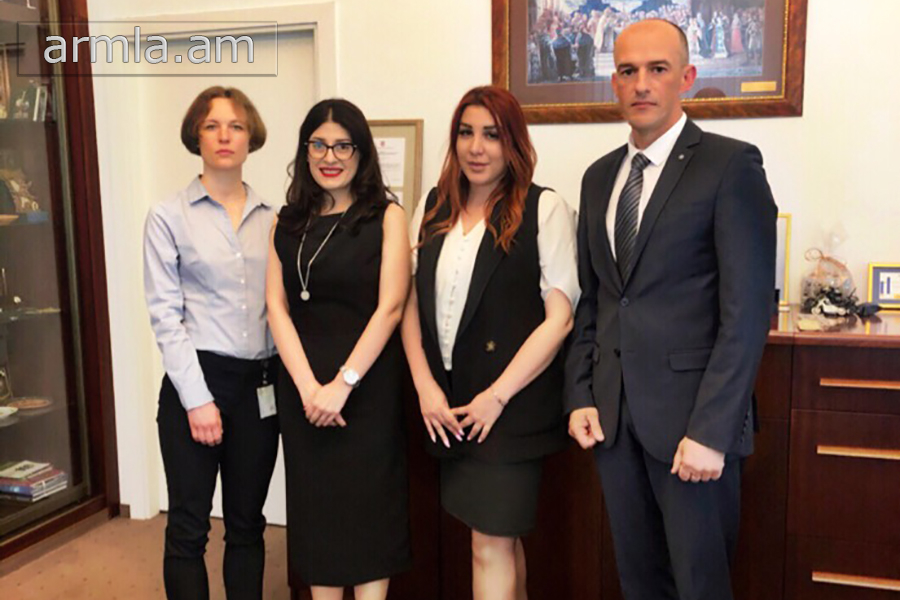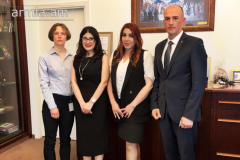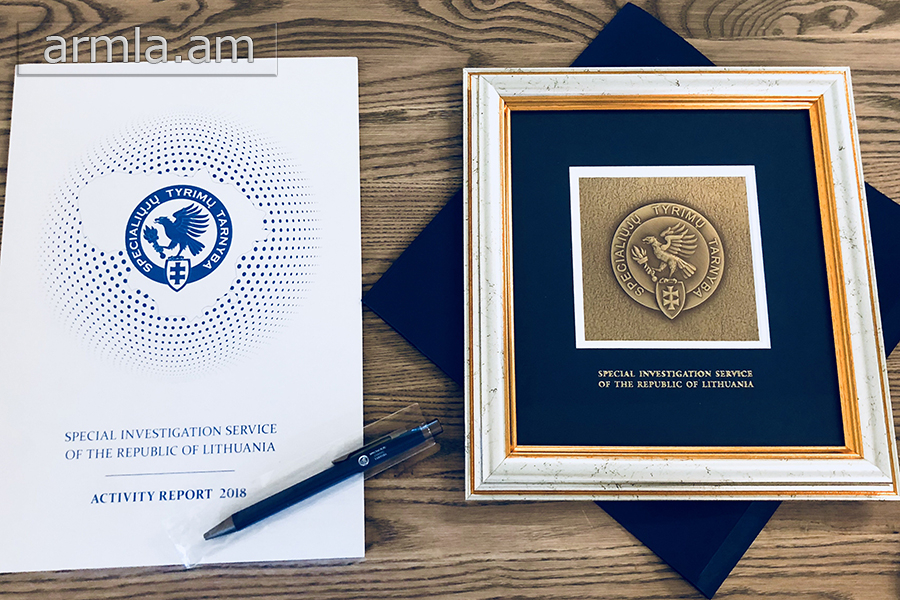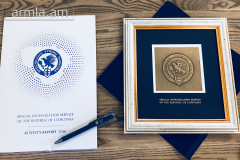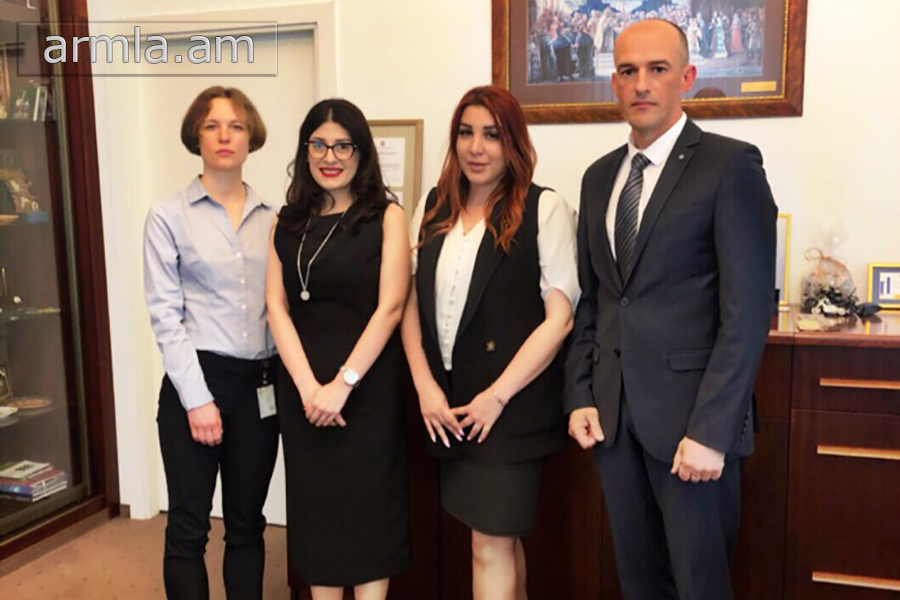
On 17 June, Syuzanna Soghomonyan and Mariam Zadoyan, representatives of the Armenian Lawyers’ Association, Secretariat of CSO Anti-Corruption Coalition of Armenia, met with the Director of the Special Anti-Corruption Service of Lithuania, Mr. Zydrunas Bartkus, and Deputy Director of the Service, Head of Corruption Prevention Department Ms Rūta Kaziliūnaitė.
Within the framework of the visit, the representatives of the Armenian Anti-Corruption Coalition Secretariat were presented three directions of the Lithuanian Special Investigation Service: law enforcement, anti-corruption and anti-corruption training, as well as other anti-corruption missions in the country. The service was created in 1997 as a corruption crimes investigation body, but for the most effective anti-corruption campaign it started its activities in the direction of anti-corruption prevention and education.
Since 2018, Analytical Anti-Corruption Intelligence Department has also been established in the structure of Lithuania’s Universal Anti-Corruption Agency. It was aimed at revealing various corruption schemes in the country. This is another argument in favor of conducting anti-corruption functions by one body, as resources are distributed effectively, and as a result this subdivision, is a link in the identification, analysis and improvement of anti-corruption policy in the three pillars of the fight against corruption.
In the context of the events taking place in Armenia, it is also characterized by the fact that the universal anti-corruption body of Lithuania, as a preventive function, conducts vetting of high-ranking officials, including judges.
Deputy Director of the Service, Head of Corruption Prevention Department Ms Rūta Kaziliūnaitė noted that in this process, information about candidates is collected from all bodies and databases, and the conclusions drawn from this report is represented to the competent authorities responsible for the appointment of high-ranking officials, who make the final decision.
In conclusion, Director of the Special Anti-Corruption Service of Lithuania, Mr. Zydrunas Bartkus, noted that any state should determine the model of the country’s anti-corruption body based on the peculiarities and context of its country. However, the existence of a political will in the country should be guided by the principle that the best option is to have one universal anti-corruption body. Mr. Bartkus explained the above-mentioned that the creation of several anti-corruption bodies is also important when there is still a need for control over each other by the mentioned authorities.
The representatives of the Secretariat CSO Anti-Corruption Coalition of Armenia also presented the process of anti-corruption reforms in Armenia, including the consistency and efforts of the Coalition to create one universal anti-corruption professional body in Armenia. At the end of the meeting the sides exchanged souvenirs.

